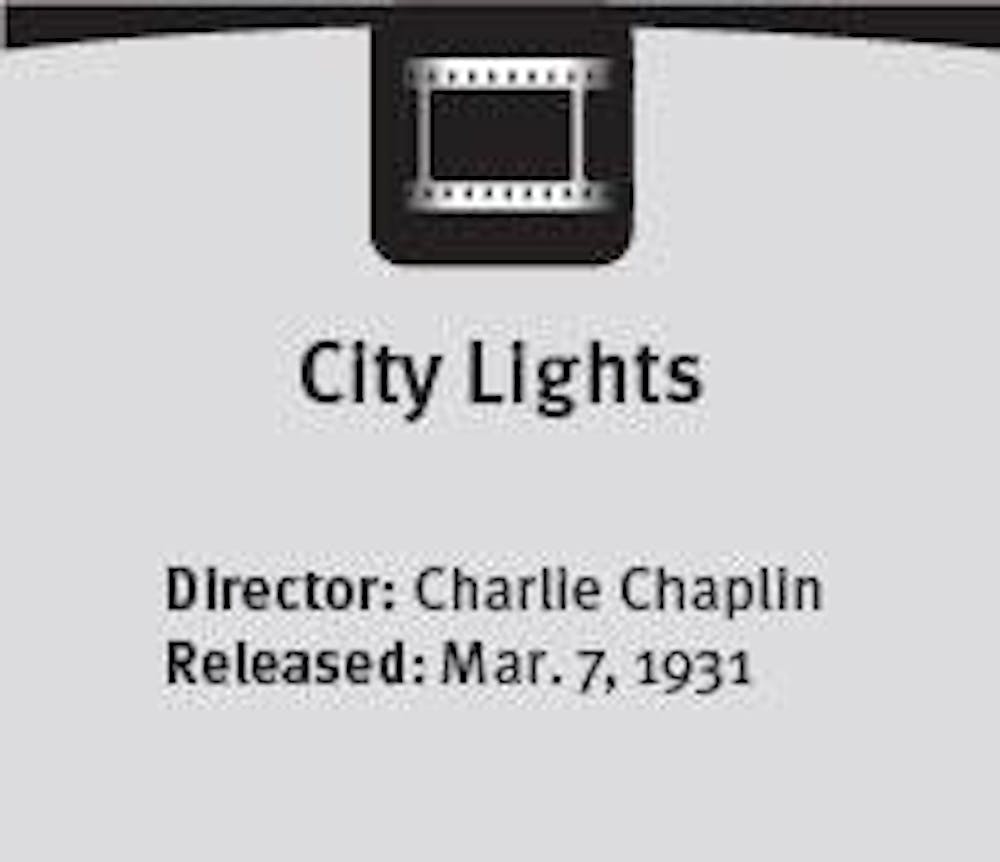Classic Flicks: Chaplin shines in 'City Lights'

Charlie Chaplin is renowned for his silent films produced in America, but he was actually a British export; he migrated to the United States in his early 20s. His line of influence runs from Jacques Tati's Monsieur Hulot through Rowan Atkinson's Mr. Bean. Now is good a time to emphasis his contemporary relevance, as The Artist, has recently become the first black-and-white silent film in decades to be nominated for multiple Academy Awards.
If you had to see just one film among Chaplin's prodigious oeuvre, you ought to see the 1931 film City Lights. One important thing to note is that City Lights, a silent film, was released in the dawn of the age of the talkie, well after Al Jolson's The Jazz Singer was released as the first film with synchronized dialogue in 1927. Chaplin, with good reason, was slow to give up the silent medium that had made him an international film star. The mustachioed, bowler hat-wearing Briton knew very well that his mime, slapstick and visual comedic techniques would not have been required or translated well into talkie form. In fact, the only spoken words featured in City Lights are the unintelligible political speeches that open the film, which seem to be Chaplin's subtle jab at the talkie.
Chaplin's choice to not use dialogue made sense; Chaplin's Little Tramp character — once said to be the most famous image in the world — used solely body language as a mode of communication. He interacts with his environs not through words, but through actions. He never needs to speak; he lives and exists as an outcast.
Running at barely an hour and a half, City Lights is short (which should please viewers who need spoken dialogue to stay awake) as well as sweet. The story concerns itself with how the Little Tramp gains funds for an operation necessary to restore sight to his beloved flower girl (Virginia Cherrill, Girls Demand Excitement). A simple story, yes, but it is in the telling that Chaplin impresses. I can guarantee that the last scene — easily one of the most emotional in all of cinema— will have even the most hardened of viewers holding back a tear or two. Quite a feat for a film sans words.
Few people realize that the Chaplin labored intensely over his films, sometimes wasting miles of film reshooting scenes dozens of times. Chaplin, a man of many talents, also scored his own films. One reason Chaplin's handiwork is not so ostensible is because his films come across as rather simple and childlike at the surface. A slip here, a fall there, a confused moment there and voila! It might seem that with just a little bit of effort, you can make a bona fide Chaplin film on your own. Alas, it takes true genius to craft something which captivates the hearts of young children and simultaneously impresses the sternest of cinematic snobs.
His other notable works include The Kid (1919), The Gold Rush (1925), Modern Times (1936), The Great Dictator (1940) and Limelight (1952), which features Chaplin's only onscreen appearance with fellow silent film giant Buster Keaton.
Joseph Allencherril is a Will Rice College junior. Classic Flicks is a column reexamining and rediscovering the best that cinema has to offer.
More from The Rice Thresher

Over 1,000 students petition against new meal plan
When Konstantin Savvon opened the Housing and Dining email announcing the new unlimited meal plan, he was instantly concerned about the impact on off-campus students like himself.

Rice football wins season opener under new coach
For the first time since 2018, Rice football opened its season with a victory. Scott Abell was soaked with yellow Powerade following a 14-12 win on the road Saturday against the University of Louisiana at Lafayette, which won 10 games and made it to the Sun Belt Conference championship last season.

Acting like an athlete: Rice basketball alum takes on Broadway
Underneath Chadd Alexander’s Broadway costume, there’s ankle tape and wrist braces — same protective gear he wore as a walk-on basketball player at Rice, though now he’s performing eight shows a week in the ensemble of “Harry Potter and the Cursed Child” instead of running conditioning drills in Tudor Fieldhouse.

Please note All comments are eligible for publication by The Rice Thresher.